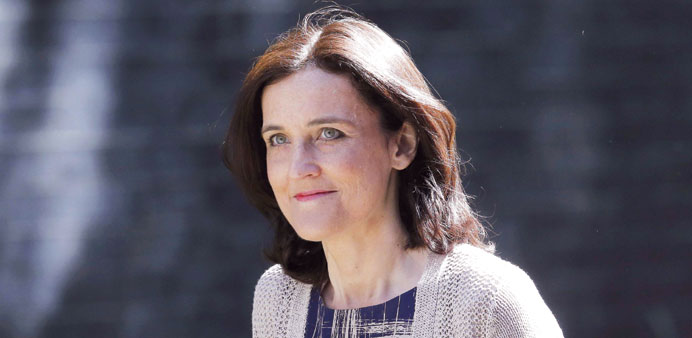Reuters
Belfast
Northern Ireland’s Protestant unionist and Catholic nationalist parties will begin talks on Monday, led by the British and Irish governments, to try to save the power-sharing government that ended decades of sectarian violence.
The British province’s devolved administration is on the brink of collapse after a murder linked to former members of the paramilitary Irish Republican Army (IRA) prompted its first minister, Peter Robinson, to step aside last week.
Britain said it had commissioned a factual assessment by the UK security agencies and Northern Ireland’s police service of the structure, role and purpose of paramilitary organisations, to be published by mid-October, to help conclude the talks.
“Recent events have highlighted the continuing impact and legacy of paramilitary organisations in Northern Ireland. This needs to be tackled as a matter of urgency,” said Northern Ireland Secretary Theresa Villiers in a statement.
A 1998 peace deal largely ended three decades of sectarian violence between Catholics who want a united Ireland and Protestants who want Northern Ireland to remain British that killed 3,600 people.
But one of the key planks of that deal was undermined last month when police said the IRA was likely involved in the murder of a former operative, despite assurances from allies Sinn Fein, which shares power in parliament, that the group had “left the stage”.
Earlier this week, Villiers proposed the creation of an independent watchdog to monitor paramilitary groups and Ireland’s foreign minister said the one-off assessment announced yesterday did not preclude future monitoring arrangements being applied.
With some members of the armed groups on both sides now thriving in racketeering and cross-border smuggling, Britain also said it would provide funding to tackle criminality and strengthen the capacity to seize criminal assets.
Northern Ireland’s Democratic Unionist Party (DUP), which refused to commit to the negotiations until it was satisfied they would deal sufficiently with paramilitary activities, said it would participate.
“I am not in the business of wrecking devolution,” said party leader Peter Robinson. “The statement by the secretary of state is a welcome first step in demonstrating that the government are taking our concerns seriously.”

